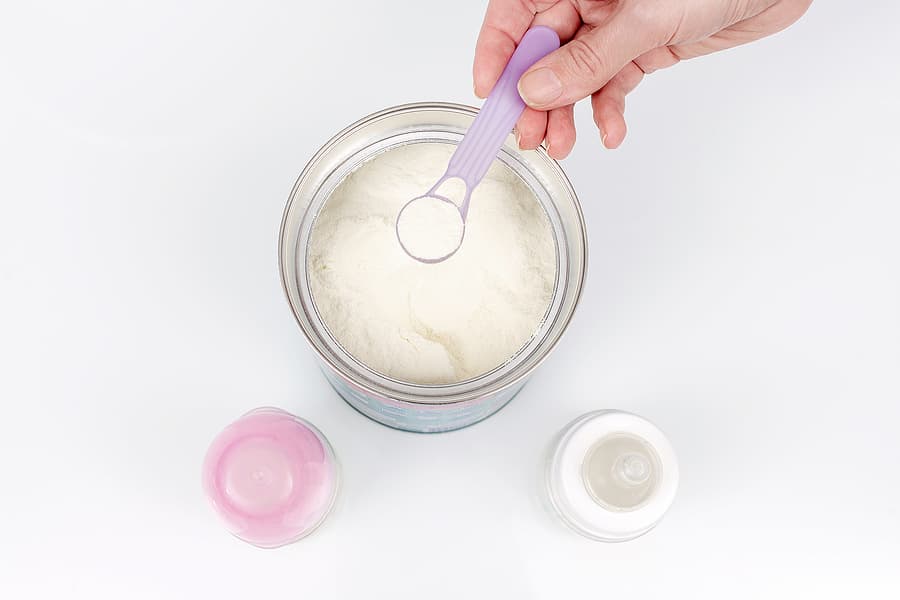An NEC diagnosis can prove incredibly devastating for the parents of premature infants. These infants often start with lower birth weight and face severe complications.
An NEC diagnosis may mean more time in the NICU and, in some cases, additional complications. When outside factors contribute to NEC, it can further raise parental frustration as they deal with the diagnosis and seek justice with a defective product attorney.
Causes of NEC
Where does NEC come from?
Doctors do not entirely know the cause of NEC, or necrotizing enterocolitis. They theorize that it may occur due to an underdeveloped digestive system. Young infants, particularly premature infants, cannot effectively fight bacterial infections.
What babies are at risk?
Premature infants may not have adequate protection, both in biochemical defenses and structural barriers, to prevent bacterial infection. Many parents whose infants have arrived prematurely already know the increased risks their little ones face, including a significantly increased overall risk of developing NEC.
How can we help prevent NEC?
Science does show, however, that formula feeding premature infants, especially in the first days of life, can substantially increase the risk that the infant will develop NEC. Infants’ underdeveloped digestive systems, particularly premature infants’ digestive systems, function best when they receive human milk.
In fact, the American Academy of Pediatrics notes that premature infants should, when possible, rely on a human milk diet. The AAP even goes so far as to note that infants who cannot receive their mothers' milk for any reason should receive pasteurized human donor milk, if possible, instead of cow's milk-based formulas.

The Link Between Formula and NEC
Consuming cow’s milk-based formula, instead of a human milk-only diet, leads to a 50 percent increased risk of developing NEC, and a 90 percent risk of developing NEC that requires surgical treatment.
Even consuming human milk with a cow’s milk-based fortifier substantially increases NEC risks, including a 4.2-fold increased risk of NEC and a 5.1-fold increased risk of NEC or NEC that results in death. Approximately 12 percent of infants born at a birth weight of fewer than 1,500 grams will develop NEC.
That does not mean that the formula causes NEC directly. Rather, it means that formula consumption substantially increases the risk of NEC development.
Scientists remain unsure about the specific connection between formula feeding and NEC. Some studies suggest that formula feeding may increase inflammation, or simply fail to provide the same anti-inflammatory support offered by human breastmilk. On the other hand, cow’s milk may increase the growth of dangerous bacteria in the gut.
In reality, human milk provides several powerful advantages for infants. Human milk helps discourage inflammation and may help reduce bacterial invasion in the body. Cow’s milk, including cow’s milk provided through formula and fortifiers, may not offer the same advantages and may, as a result, lead to greater overall risks, particularly in fragile premature infants.
Unfortunately, many infants still receive cow’s milk formula or cow’s milk-based fortifiers in the NICU, often because neither doctors nor parents know about the risks associated with formula consumption. Doctors may even believe that offering formula can help infants gain weight faster or offer additional health support while recovering in the NICU.
Approximately 25 percent of infants diagnosed with NEC will die. Others may suffer ongoing complications, some of which may remain with them for the rest of their lives. While prompt treatment, including discontinuing all feeds by mouth, can help reduce the damage caused by NEC, it may not offer enough protection to save some infants. Human milk-only diets, however, may substantially decrease many of those risks. Infants do not suffer any reduced outcomes due to human milk consumption.
Do Formula Companies Bear Liability for NEC?
Many parents feel that they have little to no choice about what type of food their children receive in the NICU. Often, the mothers of premature infants struggle to pump adequate milk. They feel that they have no choice but to introduce formula—and in most cases, they have no idea of the risks potentially associated with it.
Formula companies often rely on parents' lack of knowledge to push infant formula instead of human milk. They offer formula as the easier option and may even suggest that formula feeding offers advantages over human milk. Furthermore, formula companies offer no warning to parents about the dangers their infants might experience if fed formula instead of human milk. For those reasons, formula companies may bear liability for the devastating diagnoses experienced by many premature infants.
Misleading Advertising
Formula companies use various advertising techniques to encourage parents to choose formula for their infants.
Marketing Geared Toward the Parents of Premature Infants
Premature infants often have specific, extensive medical needs. Any parent may worry about an infant’s ability to keep up with their peers: gain weight at the right rate, meet milestones at the right time, and see comprehensive brain development. However, the parents of premature infants often have additional worries. They may feel concerned that inadequate nutritional support could prevent their infants from growing as much as possible, ultimately leading to delays later in life.
Formula manufacturers, including Enfamil and Similac, aim to play on those fears through their marketing. They offer specific formulas and fortifiers geared toward the parents of premature infants. These formulas, they claim, can help infants catch up on weight gain or support their overall brain development. Even the packaging for these products could cause parents to feel confident in allowing their infants to receive that type of nutrition, especially since it remains prevalent in many hospitals.
False Needs Created Through Marketing
Both Similac and Enfamil contain extensive information about feeding methods on their websites. In fact, they may offer more information about breastfeeding than they do about formula feeding. They claim to want parents to make an “informed decision” about formula or human milk for their infants.
Unfortunately, that breastfeeding content offers a great deal of information that may prey on the fears of new mothers. It discusses many breastfeeding problems, from mastitis to supply issues. It fails to address the concerns, including potential NEC diagnosis, that may accompany formula feeding. That information may push mothers to try formula at the first sign of a problem rather than working through potential issues.
Furthermore, formula companies ensure that parents have access to formula before the baby even comes home. This normalizes formula, pushes it over breastfeeding, and may make it easier for parents to reach for formula on the first fussy evening or sign of inadequate supply.
Unfortunately, women’s bodies operate on a supply-and-demand system when producing breastmilk. When mothers use formula to supplement, their bodies may not recognize the increased demand, which means that they may not make the additional milk needed by the infant. Ultimately, this could cause an end to the breastfeeding relationship altogether.
Inadequate Warnings
Ultimately, the failure of Similac, Enfamil, and other popular formula manufacturers comes down to a key, dangerous issue: failure to warn and inform parents about the potential dangers of NEC.
Premature infants face several dangers. They may need special equipment to help them feed appropriately, travel safely, or even wear clothing and diapers. All of those devices and products carry clear warning labels that let parents know if they place their infants at any unnecessary risk by using those products.
Even formula bottles may contain clear warnings. For example, Similac and Enfamil’s ready-to-feed preemie formulas contain warnings about placing the bottles in the microwave because microwaving could cause hot spots that might scald the baby.
They do not, however, contain any warning whatsoever about NEC.
Parents generally have no idea about NEC and its hazards until it happens to their infants. They may not realize the danger their infant faces simply by consuming a bottle of formula. Even doctors may not fully realize the danger of premature infants' formula feeding. Formula companies continue to profit from parents who may not know about the dangers their child faces or will need to avoid.

What Should You Do After Your Premature Infant Receives an NEC Diagnosis?
Amid an NEC diagnosis, you may need to focus on your infant and your infant's recovery. You may have to learn about the NICU, figure out how to handle an ostomy, and juggle the challenges of an infant in the NICU with all the other difficulties often associated with a growing family.
However, if your child has faced a diagnosis of NEC due to Similac or Enfamil consumption in the NICU, you may have the right to compensation. You must protect your right to compensation, and a lawsuit can help provide you with the funds you need to ensure that your infant receives the highest standard of care, both in the NICU and after heading home.
1. Contact a lawyer as soon as possible.
A lawyer can help you learn more about whether your family may deserve compensation for an NEC diagnosis and what steps you need to take to protect your family. Talk to the lawyer about your infant’s diagnosis, what formula or fortifier your infant received, and what compensation you might deserve. A lawyer can help you learn more about what steps you need to take next to maximize the compensation you can recover.
In many cases, a lawyer can help take over your case from there. You do not want to worry about a lawsuit while caring for a child recovering from NEC. A lawyer can handle the lawsuit process while you focus on your child’s recovery.
2. Keep up with the increased bills you may face after an NEC diagnosis.
With a child in the NICU, you may already have medical bills mounting substantially. To help protect your right to compensation, try to differentiate, when possible, between bills associated with your infant’s prematurity and ongoing treatment and the bills directly associated with NEC. When in doubt, however, talk to your lawyer about those bills.
Your lawyer can help you evaluate what additional time your child may have spent in the NICU and what additional care your child may have required on returning home because of the NEC diagnosis. If your child needs in-home care or ongoing support, such as an ostomy, because of an NEC diagnosis, you may include those extra costs as part of your claim.
3.Consider what other financial losses your family has faced because of an NEC diagnosis.
Did you or your spouse have to take a leave of absence at work or even give up employment temporarily to care for a child in the NICU? Will you have to give up your job to keep your child home, rather than sending them to daycare? Talk to your lawyer about the financial losses you have sustained and how they may impact your overall right to compensation following an NEC diagnosis.

4. Avoid posting about the lawsuit on social media.
While you may share your infant's struggles, try not to blame formula manufacturers directly while dealing with your claim. You do not want to inadvertently share information that could decrease the compensation you can recover. Keep information about the lawsuit private until you resolve it.
Your family may deserve compensation if your infant received an NEC diagnosis due to formula or fortifier consumption in the NICU or after returning home. A lawsuit cannot restore lost health, but it can provide you with the funds to provide your infant with the highest possible standard of care. Contact a lawyer to discuss your family’s right to compensation.
